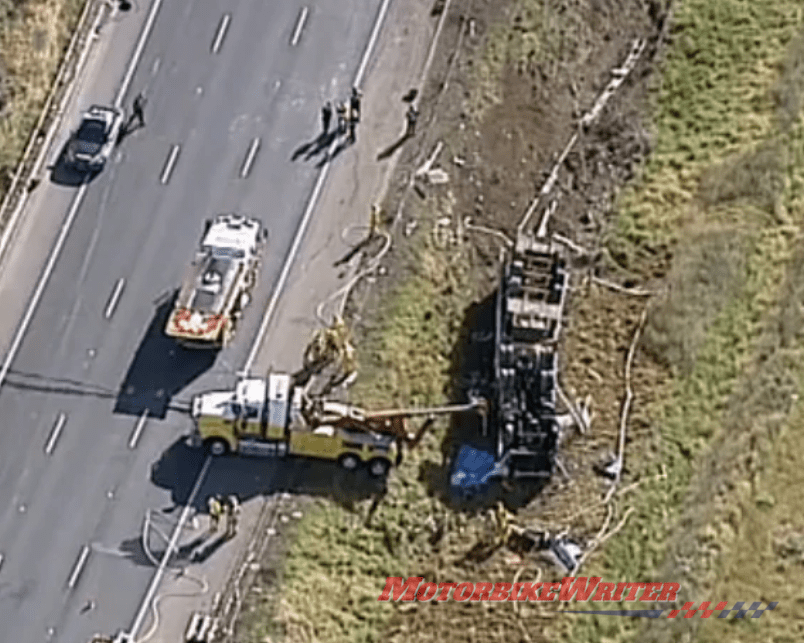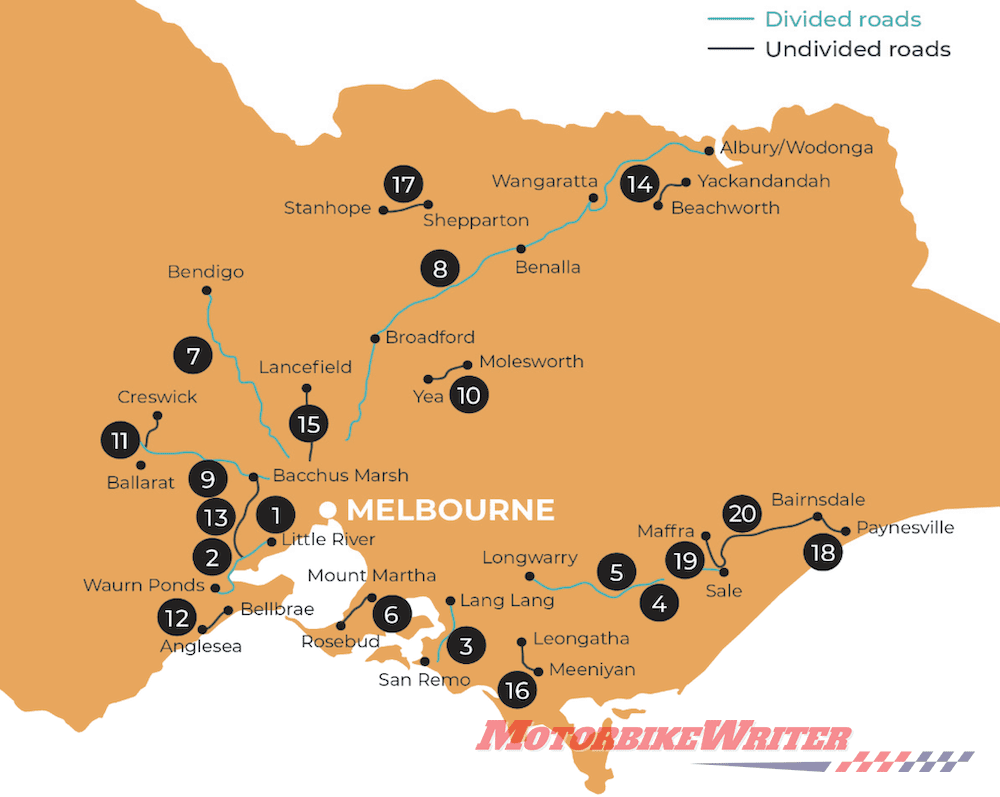Claims about the safety and cost effectiveness of wire rope barriers have been slammed by a damning report that also found Victoria’s WRB rollout is almost $100m over budget, over time and under-maintained.
The Victorian Auditor General’s report also found there was no evidence to support the claimed safety benefits for motorcycle and scooter riders.
It vindicates much of the criticism by riders skeptical of safety claims and view wire rope barriers as a particular danger to motorcyclists and scooter riders.
While the report looks at Victoria’s rollout of various “safety measures” such as rumble strips and line markings at 20 dangerous locations, it is largely focussed on wire rope barriers with ramifications for all states.
Safety claims overrated
The WRB rollout is a major part of the state’s Towards Zero Strategy that claims “flexible barriers” or WRBs would reduce run‐off‐road and head‐on “serious causality crashes” by up to 85%.
However, the auditor’s report found VicRoads did “not have strong evidence to support this statement” and found that a 46.5% reduction was “more statistically robust”.
More importantly for riders, it found that VicRoads’ crash reduction factors were based on crash data for all vehicle types, mainly cars, not motorcycles.
The report says the VicRoads program to target 20 known danger spots contained “no information about how effective flexible barriers are for different types of road users, such as motorcyclists and heavy vehicle drivers”.
“While the Towards Zero Strategy references two studies about the effectiveness of flexible barriers for motorcyclists, neither of these studies have enough data for VicRoads to rely on.”
Maintenance and budget
The auditor’s report also found VicRoads has “failed to properly maintain and monitor the barriers it installed, which increases the risk that they will not perform as intended”.
“If flexible barriers are not properly maintained, then their effectiveness is likely to reduce,” the report states.

It also says VicRoads did not sufficiently plan its flexible barrier installation projects, leading to a budget blow-out of about 22% or $99.9m.
“While flexible safety barriers save lives and reduce serious injuries on Victoria’s roads, they are not as cost‐effective as VicRoads and TAC intended,” the report found.
Australian Motorcycle Council secretary John Eacott says the report is “as damning as the Auditor General could give for a project that has always been queried by riders in Victoria”.
“From personal experience, I can confirm that VicRoads maintenance and repair of WRB relies upon public reports, and is grossly underfunded,” he says.
Motorcycle Riders Association Road Safety Committee spokesman Damien Codognotto says they predicted “the cost of VicRoads illogical fixation on road barriers, at the expense of more effective road safety measures, would prove very bad management of our roads”.
“The claim that wire rope barriers saved lives is not credible. Victorian crash data is inadequate,” he says.
“Add the cost of unnecessary deaths, injuries and property damage and it is obvious VicRoads should be held to account. Heads should roll.”
Recommendations
The report recommends VicRoads and the Traffic Accident Commission develop a better business case, provide “robust” statistics, source peer-reviewed evidence sources, maintain better records and conduct “better asset management maintenance repairs”.
VicRoads and TAC have accepted all recommendations and provided a detailed action plan to address them.
Meanwhile, riders can still make submissions about the perceived dangers of wire rope barriers to a Victorian inquiry into the road toll.



